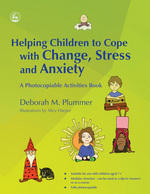“It is easy to be fooled by the apparently dismissive attitude that some young people show towards to school. It may be the case that for many students school is, indeed, ‘boring’ but this does not mean that it is unimportant to them. On the contrary, the school is the main site where young people establish their independent identities outside the family unit. From their earliest experiences of schooling, children are engaging with a key social institution as individuals in their own right. Whether they see themselves as succeeding or failing, socially and academically, they cannot escape the impact of these experiences on their developing identities. Relationships with teachers are central to this identity formation process.”




